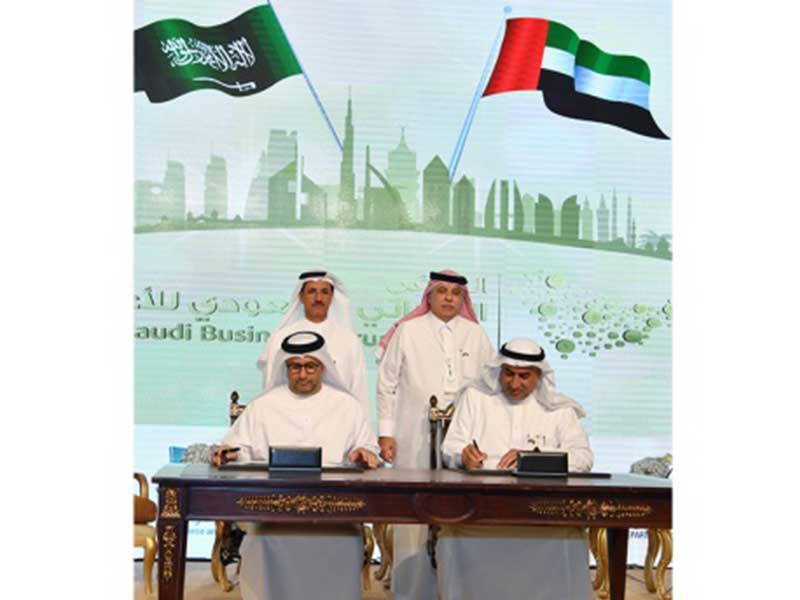Saudi Arabia's Salic and UAE's Al Dhara tie up in 5 billion riyal food security venture

Joint venture to focus on Black Sea countries to develop land for food production
Saudi Agriculture & Livestock Co. (SALIC), a unit of the country's Public Investment Fund, and Al Dahra, the UAE's biggest agricultural company, entered into a 5 billion-riyal (Dh4.9bn) joint venture agreement to develop land for food in the Black Sea region.
The venture, which is owned equally by both countries, was created with the aim of supplying Saudi Arabia with grains. The kingdom ended its domestic wheat production in 2016.
"We want to supply the market with grain and animal feed and we will target the countries in the Black Sea," Abdullah Aldubaikhi, chief executive officer of Salic, told reporters on the sidelines of a UAE-Saudi Arabian business forum on Wednesday in Abu Dhabi.
"We are part of the food security of Saudi Arabia. We need to import all our grain. The project has a paid-up capital of 5 billion riyals and may be increased."
The new venture will bring together the assets of both companies Mr. Aldubaikhi said. Already, the companies together have assets in Black Sea countries that include Ukraine, Poland, Romania, and Serbia, he said.
"Saudi Arabia has huge demand, it's a big market, the target of this is to serve and supply Saudi Arabia because they need commodities, from grain to animal feed," said Khadim A. Al Darei, co-founder and vice chairman of Al Dhahra, said at the conference.
It wasn't immediately clear though whether the joint venture was an amalgamation of the two companies and if they would just supply Saudi Arabia but the UAE too.
Mr Aldubaikhi said that Salic had signed a $100 million agreement with RZ Agro, a Russian company, last week in Russia during the Saudi king's visit to Russia.
When it comes to food, the GCC region is vulnerable to supply shocks because of the instability in the region.
Imports account for between 80 and 90 per cent of food consumption in the GCC, where food self-sufficiency is unattainable because of the high temperature, low rainfall and scarce renewable freshwater sources.
Events such as the 2011 uprisings, political instability in Egypt and Syria, food price spikes and Iran’s threats to close the Strait of Hormuz have heightened risks, according to analysts at Chatham House, an independent policy institute based in London.
Al Dahra said earlier this year that it will spend about US$130 million in 2017 on acquiring and developing land for food security projects around the world. The company specialises in the cultivation, production and trading of food commodities. It has a long-standing partnership with the Abu Dhabi Government and is planning to expand its holdings in Serbia, where it has 1,000 hectares of land and plans to expand its purchases there to reach 20,000 hectares.
As well as land in Egypt and Serbia, Al Dahra has 4,047 hectares in the US, 4,047 hectares in Spain and 2,023 Hectares in Australia. The focus of the UAE’s food security projects is to ensure a steady supply of basic staples such as wheat and rice.
The UAE is one of the world’s largest consumers of rice per capita, with overall consumption expected to hit 836,000 tonnes during the 2016-17 marketing year, a year-on-year increase of 16 per cent, according to the foreign agriculture service of the US department of agriculture.
Over 1,000 participants came to the UAE and Saudi Arabian forum to discuss of enhancing economic co-operation between the two countries, especially in fields that promote diversification away from oil revenues as part of their long-term plans.
In the newspaper
https://www.thenational.ae/business/saudi-arabia-s-salic...
October 10, 2017, Abu Dhabi - United Arab Emirates